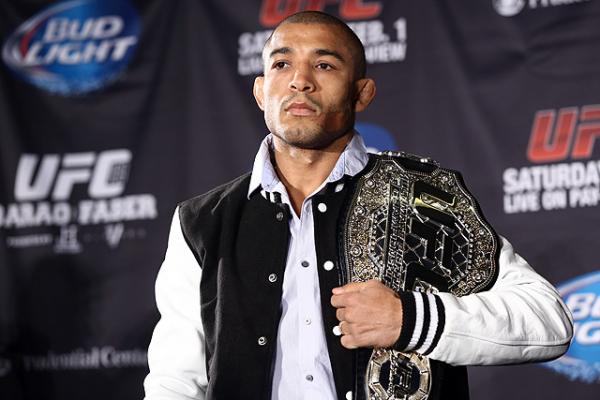Let’s be honest with ourselves and admit that the sport of mixed martial arts can be brutally violent at times. Both physically and mentally, the argument can be made that no other sporting event compares to the harsh nature a sport like mixed martial arts brings to the table when two high-level fighters meet inside a steel cage and fight for money and glory.
Unfortunately, there is another side to the sport than can be as equally devastating to one’s body as fighting. I’m talking about the weight cut. The casual fan, the one that just tunes in on fight night, has little to no idea what lengths some of these fighters go to make a certain weight. We have all heard some of the horror stories of guys passing out inside saunas. Fighters, who are some of the toughest people in the world, give up on a weight cut because of how difficult it becomes at times. There have even been some deaths that have occurred while a fighter has attempted to cut weight. To put it in perspective, fighters have given up large sums of money, and sometimes a title belt, over a mere pound or two. If that doesn’t paint the picture, I am not sure what will.
Undoubtedly one of the few reasons why fighters feel it is okay to cut so much weight is the fact that they know they have 24 hours to rehydrate. Some only use traditional methods like drinking more water or consuming pedialyte immediately after weighing in and getting some nutritious food in their system. Others, however, use something that is proven to be way more effective. They rehydrate via intravenous methods. Rehydration by way of an IV is very effective because instead of sending the fluid to your stomach and then waiting on the digestive system to distribute it, the digestive system is bypassed and the fluids are inserted directly into the fighter’s veins..
With the recent revamp of the UFC performance-enhancing drug policy thought United States Anti-Doping Agency (USADA), it was announced that fighters will no longer be allowed to use IVs to rehydrate. The change was to be effective immediately, but a pretty huge uproar from fighters, media and even some health professionals prompted the USADA to change the ruling to go into effect tentatively in October. The only reason why the date is tentative is because the reaction to this news, which came out a few weeks ago, has been overwhelmingly negative at the very least. There’s a good reason for the negative reaction, too. It is flat out dangerous to ban IV use for rehydration.
There are many different levels in which a ban of IVs is dangerous for the fighters. The most glaring reason is the potential for an increase of brain damage. It is common science that our brain is surrounded by water. The less water we have in our system, the less water we have protecting our brain. That could be very problematic when you are involved in a sport where almost the entire objective is to get punched, elbowed and kicked in the head. Luckily, not one death has occurred in a high-level MMA promotion, but it’s almost a guarantee that the odds of this happening will dramatically go up if fighters are not allowed to properly rehydrate themselves and protect their brains.
MMA should have a stricter drug-testing policy, but IV bans is should be off the table. Fighters are always looking for any little, tiny edge they can get, and being the bigger guy is one such advantage. They will not stop cutting weight because IVs are banned. Instead, they will just figure out other ways to shed the pounds. Why play around with something so dangerous, knowing guys will not stop with the extreme weight cuts? The USADA needs to understand that it is a part of the sport. The organization needs to do its best to make it as safe as possible, not the complete opposite.

